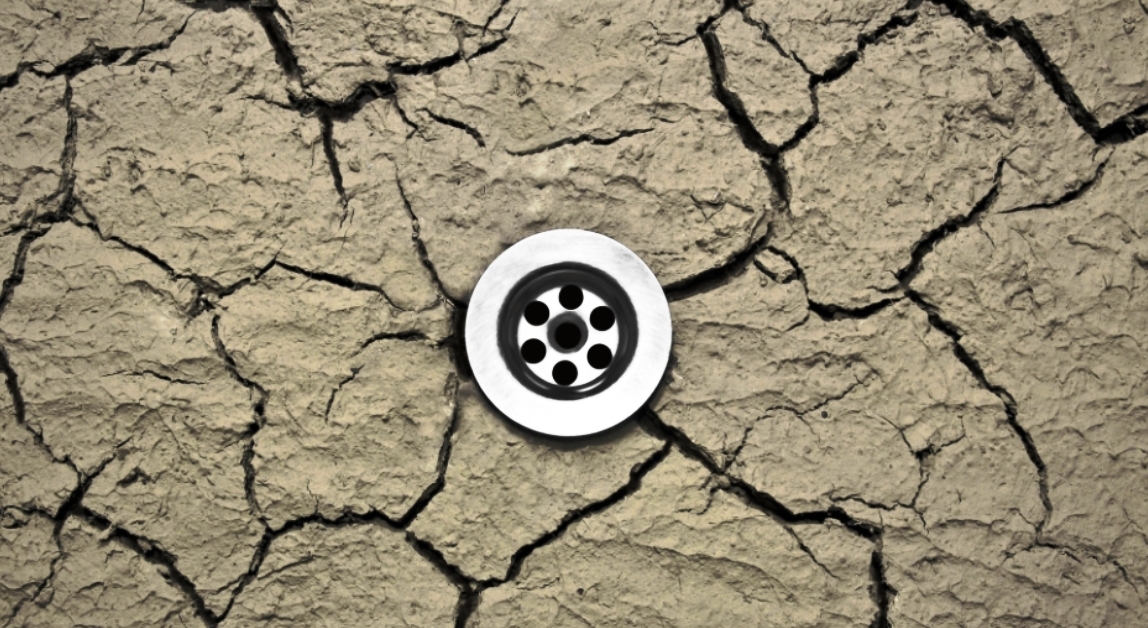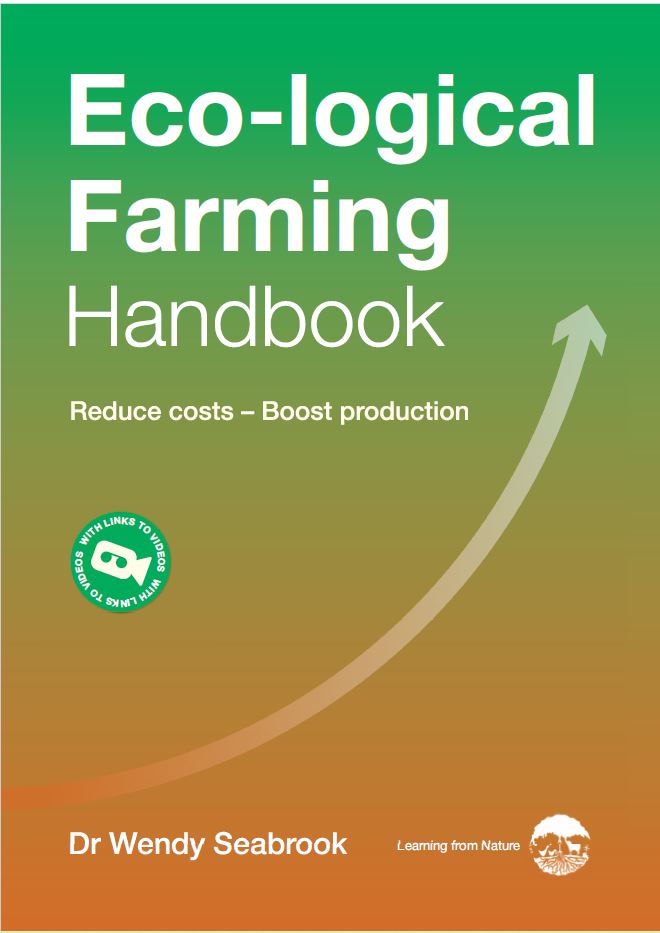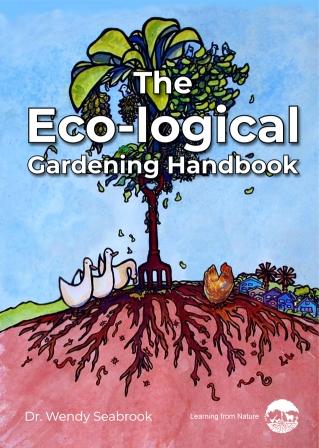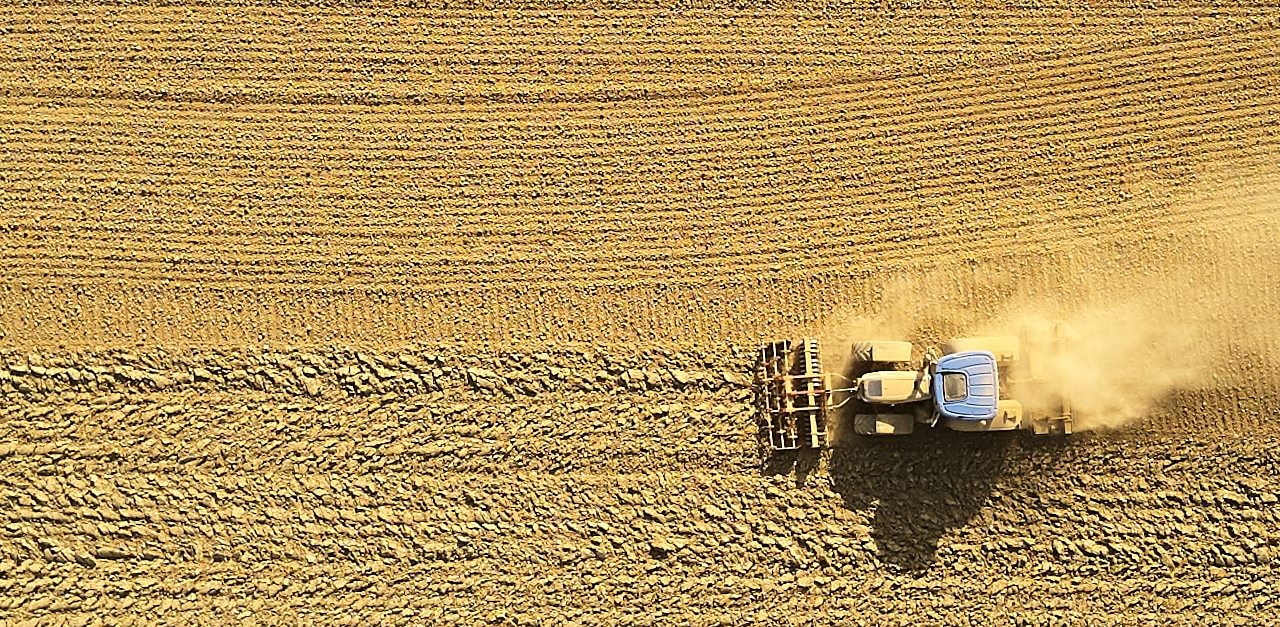With farmers and food gardeners worldwide battling floods, drought, wildfires, and scorching heat, we are running out of time to solve the problems with agriculture.
Regenerative agriculture along with technologies like drones, driverless tractors, robots, gene editing, and controlled-environment vertical farms are widely promoted. But both approaches have major drawbacks. In praising the role of agri-tech as a means to create a cleaner and greener future by reducing agrochemical and fossil fuel consumption, we ignore the energy and resources required in their manufacture and distribution and their contributions to the waste stream.
Regenerative agriculture, as generally practiced, is focused on using practices to improve the symptoms, rather than the cause of poor growing conditions. Low levels of organic matter, nutrient deficiencies, water running off rather than infiltrating and being stored in the soil, crops relentlessly hammered by insects, and nutrient-deficient food all tell us that our ecosystems are not in good working order.
Repairing the ecosystems underpinning our food production systems, we tackle the root cause of our poor growing conditions and benefit from the free ecological services functioning ecosystems provide. It’s how we solve the problems with Agriculture!
In principle, the production systems we use to produce food are no different from those that manufacture products like chocolate biscuits and big-screen TVs! We combine equipment and machinery with our labour to convert raw materials into products and services. The fundamental difference is that our food production systems need ecosystems to work.
By purposefully simplifying our food production systems to maximise livestock production or the yields of one or two crops, we have designed food production systems in our farms and gardens with little regard for these ecological systems. Having mostly ignored and neglected these exceptionally well-designed, locally adapted ecosystems, our production systems are more likely to break down when under extra strain.
Having mostly ignored and neglected these exceptionally well-designed, locally adapted ecosystems, our production systems are more likely to break down when under extra strain.
As demonstrated through our vulnerability to droughts, flooding rains, extreme heat, and unusual pest and disease outbreaks. We also experience issues with food quality and higher operating costs from cultivating the soil and applying pest controls, fertilisers, and other external inputs to replace the free services our ecosystems would otherwise provide. It has become the norm whether we use chemical or organic inputs.
Our approach differs little from manufacturers compensating for rundown production systems with extra lubricants, equipment and machinery! Recognising that virtually all of the issues we have with growing issues are the symptoms of poorly functioning ecosystems, we tackle the root cause of the problem with agriculture by repairing the ecological systems within our production systems. Our soils naturally supply nutrients to our plants. Water readily infiltrates and is stored in our soil. Insects and birds control most of our pests. We harvest healthy food relying on Nature’s free ecological services instead of fertilisers, pest controls and other inputs. We reduce the impacts and recover quicker from extreme weather events and unusual pest and disease outbreaks. Imagine for a moment that you manufacture chocolate-covered biscuits… But the biscuits come out of the production line with holes in the chocolate coating. What do you do? Set them aside and get another bit of equipment to finish the coating. Or sort out the root cause of the problem by getting your production system working better?
Imagine for a moment that you manufacture chocolate-covered biscuits… But the biscuits come out of the production line with holes in the chocolate coating. What do you do? Set them aside and get another bit of equipment to finish the coating. Or sort out the root cause of the problem by getting your production system working better?
Now, imagine that your soil tests repeatedly show low organic matter levels. What do you do? Get out your tractor or wheelbarrow and spread compost and mulch. Or do you address the source of the problem by repairing the ecological systems producing organic matter? Relying on regular applications of compost and mulch to increase organic matter and the carbon it contains is no different from depending on an extra chocolate coating machine!
Repairing our Ecosystems
Rebuilding the ecosystems supporting our food production systems doesn’t happen overnight! But we quickly start to experience the benefits as our production systems become more resilient and we save money on fertilisers, pest controls and other inputs. Ecosystems are complex, but repairing them is not complicated. Three functions drive most of the action: nutrient cycles, water cycles, and energy flows. Usually, by repairing any one of these, we improve the others because they are interconnected.
Let’s look at a practical example. I spent years trying to fix all the problems identified in my soil tests with the usual inputs. Depending on the season, my clay soil was waterlogged, gooey, or set like concrete. Now I just focus on giving my soil organisms the resources to repair my soil ecosystem.
So let’s stop limiting our efforts in repairing ecosystems to restoring remnants of native vegetation and planting natives in the corners of our fields and the bottoms of our gardens! Let’s start benefiting from three billion years of research and development by growing food in functioning ecosystems.
Farmers and food gardeners who continue using time-honoured practices that maintain resilient, functioning ecosystems, and growers who repair their ecological systems, have lower production costs and are better placed to deal with extreme weather, resource constraints, and global supply chain issues.
They supply nutritious food and sustainably intensify production by expanding vertically, developing polycultures and integrating livestock. Ecosystem services such as biodiversity, carbon sequestration, and flood mitigation are supplied as natural by-products.
Why we’ve overlooked repairing our Ecosystems
Most of us were not brought up to look at the world in the context of relationships. In Western cultures, we learn to see the world as made up of individual things, each with its discrete properties. We tend to focus on improving the properties of specific elements.
In East Asian and most Indigenous cultures, people are more ‘holistic’ in thinking about problems. They recognise that situations are constantly changing and focus more on relationships and, therefore, the system itself. Here’s a simple demonstration. Name the two related items in this list of words – “train, bus, track”. What would you say?
In the West, we tend to pick “bus” and “train” because they are both vehicles. In contrast, east Asian and most Indigenous cultures would say “train” and “track” since they focus on the functional relationship between the two – one item is essential for the other’s job.
Once we return to seeing, valuing and strengthening the relationships enabling eco-systems, the long-term solutions to healing them and fully benefitting from their products and services will be blindingly obvious.
Featured Image – The Human Planet | Psychology Featured image by Johny Goerend on Unsplash
The author, Dr Wendy Seabrook is the founder and CEO of Learning from Nature. Learning from Nature supports food growers to benefit from Nature’s free ecological services by repairing the ecosystems in their farms and gardens with resources, like the Eco-logical Farming and Gardening Handbooks.

